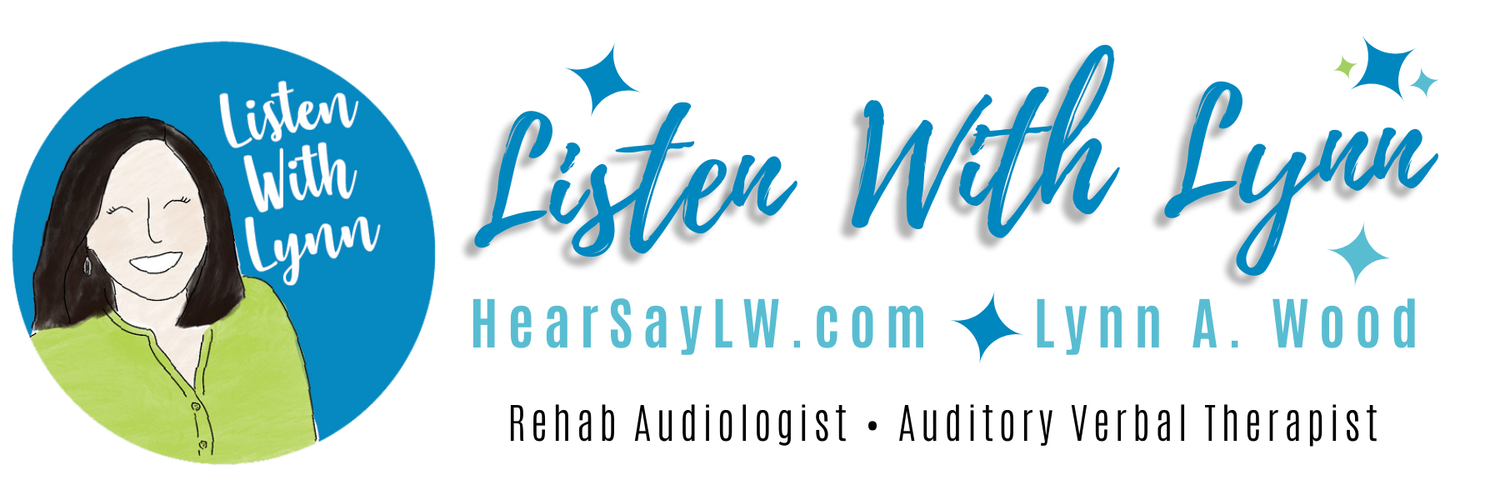On a whim, in 2014, I began writing content that became the HearSayLW blog. My purpose was to share auditory verbal resources, daily activities, fun games and content with families in my private practice. In no time, I had followers from around the globe, both families and professionals. My blog filled a need for readers that were seeking knowledge about auditory access, hearing technology and the listening and spoken language journey.
To date, I’ve written 617 posts for HearSayLW, published 479 of those and have 138 drafts in my inbox. Many of you have been following for years, so thank you for sticking around. It’s been so much fun and the BEST is yet to come. The HearSayLW blog is on my new website www.HearSayLW.com and is living alongside my newest venture Listen With Lynn™ LSL tools for parents and professionals. I will continue to blog about LSL topics and activities many of which will be available for download.
I’d love to hear suggestions and your ideas for LSL product development and creation that will inspire listening, spoken language, literacy, and auditory processing therapy materials for children and adult auditory rehabilitation resources.
HearSayLW.com established 2014





